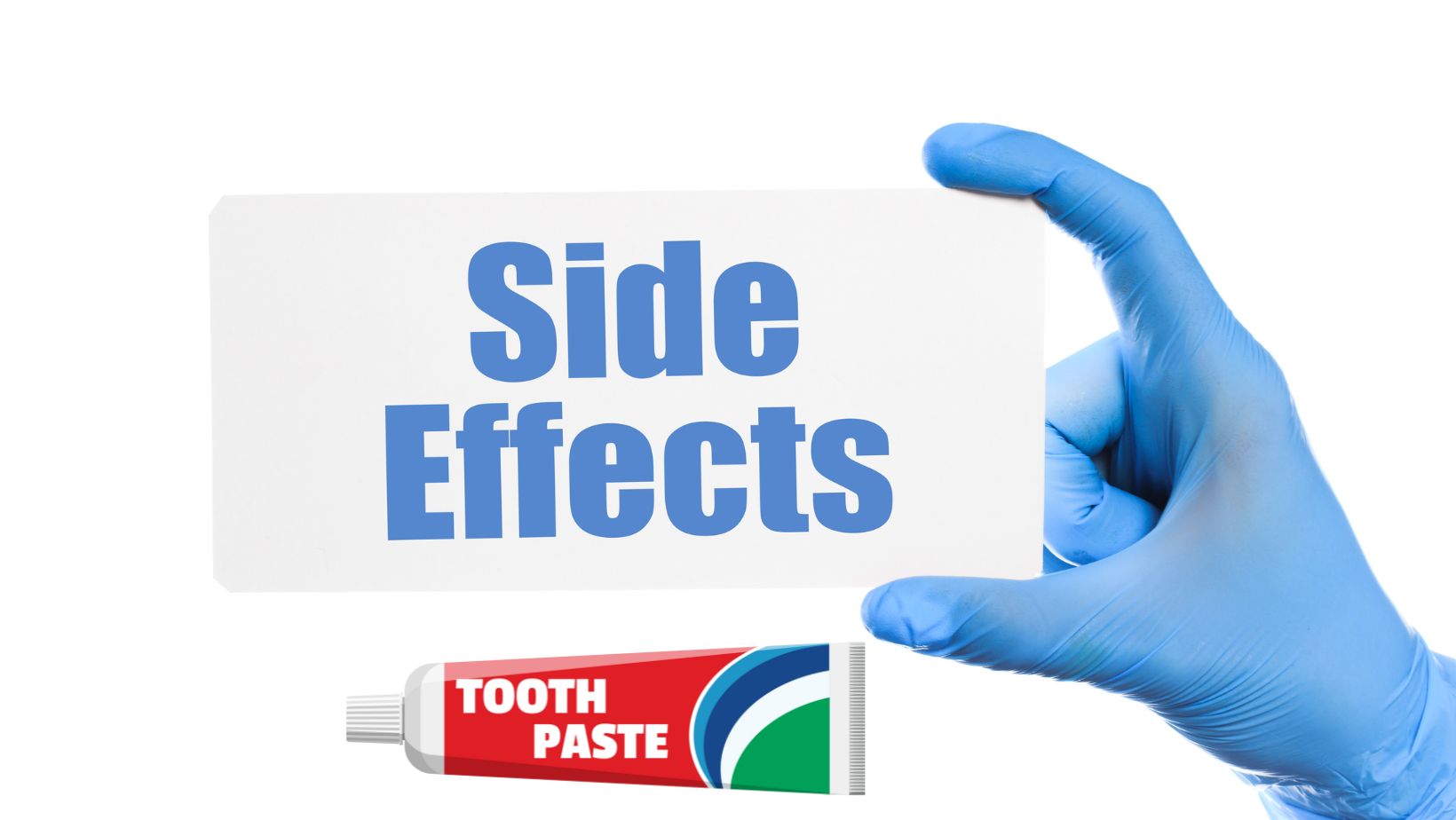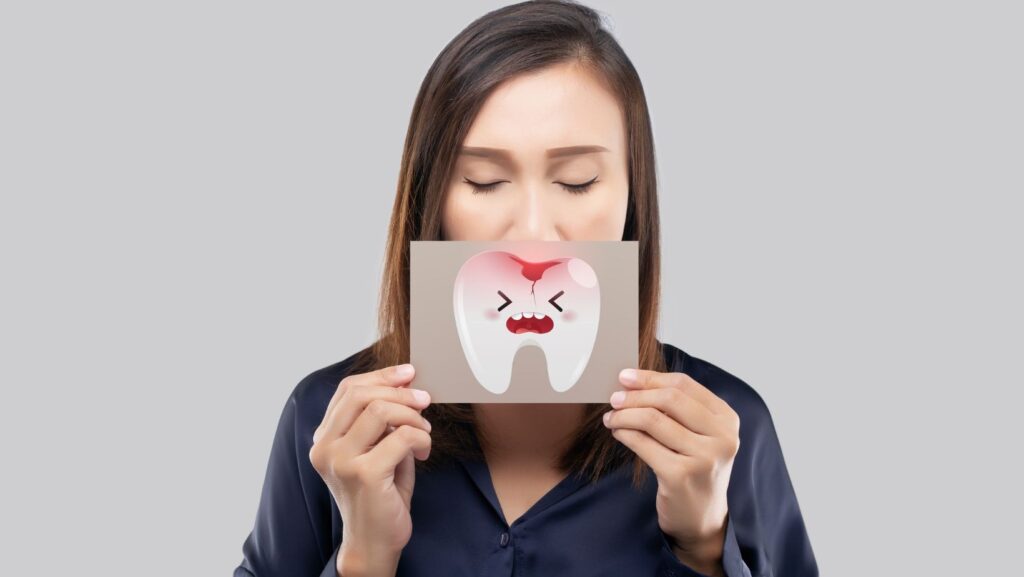
Ulcers and Canker sores have affected a significant portion of the population. Although their elusive cause has long confused people, there are claims that toothpaste can cause Mouth Ulcers and Canker Sores. But is that true?
Well, Absolutely, Yes. Toothpaste can cause Mouth Ulcers and Canker Sores in many individuals. While ulcers are typically a result of weather changes, stress, improper oral hygiene, and certain foods, they can also occur due to a particular toothpaste. have been linked to their occurrence.
According to some studies, Sodium Lauryl Sulfate (SLS) in your toothpaste is a potential culprit lurking, resulting in mouth ulcers and canker sores. Studies suggest that SLS, a detergent ingredient, increases the frequency and intensity of canker sore outbreaks. Approximately 1 in 5 people suffering from canker sores regularly discovered that their SLS-rich toothpaste was the culprit.
Want to learn more? Come join us. The article will address toothpaste ingredients that can result in ulcers and canker sores. We will also offer insights to those seeking relief and control over their oral health.
Table of Contents
Can Changing Toothpaste Frequently Cause Mouth Ulcers and Canker Sores?
Frequent changes in toothpaste brands or formulations can develop some individuals’ mouth ulcers and canker sores. This can happen due to the varying toothpaste ingredients or formulations that can adversely affect certain individuals. Reaction to a specific ingredient or compound in toothpaste can manifest as irritation and result in developing mouth ulcers or canker sores.
Besides that, individuals who are allergic or sensitive to flavors, preservatives, or foaming agents should avoid frequently changing toothpaste. Remember repeated exposure to different toothpaste formulas that triggers reactions leading to mouth ulcers.
In addition, changing toothpaste frequently disrupts the oral microbiome balance. Since the oral microbiome plays a crucial role in maintaining oral health, any disturbances to its equilibrium may cause canker sores or other issues. Therefore, to minimize the risk, it isn’t advisable to change toothpaste frequently.
Besides that, paying attention to the ingredients in your toothpaste is also important. When changing a toothpaste, choose one with fewer potential irritants or allergens. It is always smarter to consult a dentist or healthcare professional on which toothpaste you should use.

Can Fluoride Toothpaste Cause Ulcers?
No, typically, Fluoride toothpaste is generally safe and beneficial for oral health, and it may not cause ulcers. However, some individuals may experience sensitivity or allergic reactions to fluoride. If you, too, are one of them, Fluoride toothpaste can cause ulcers in your mouth. Fluoride itself is not a common cause of ulcers.
It is one of the best widely used ingredients in various dental care products. Fluoride strengthens tooth enamel and prevents tooth decay. American Dental Association ADA approved only Fluoride Toothpaste to be sold across the States. However, still, excessive fluoride exposure can result adversely.
Individuals with a sensitivity to fluoride might experience oral ulcers or irritations after using fluoride toothpaste. This sensitivity can result in swelling, redness, or sometimes mouth ulcers.
Which Toothpaste Ingredients Besides SLS and Fluoride Can Cause Mouth Ulcers and Canker Sores?
Sodium Lauryl Sulfate (SLS) is a common ingredient in toothpaste known for triggering canker sores. However, it isn’t the only ingredient that can contribute to the development of these mouth ulcers.
Here are other ingredients in your toothpaste that may lead to canker sores forming. For instance:
- Flavoring agents, including Cinnamon or citrus, can cause mouth ulcers in certain individuals. It is typically a compound called cinnamaldehyde in Cinnamon that can cause mouth ulcers.
- Whitening agents like hydrogen peroxide or carbamide peroxide can cause canker sores in some individuals.
- Chemicals such as pyrophosphates in some tartar control toothpaste may trigger mouth ulcers in individuals.
- Besides toothpaste, Alcohol-based mouthwashes can be harsh on oral tissues and thus cause Canker Sores.

Why Does Colgate Give Me Mouth Sores?
Yes, various ingredients in Colgate in some cases and certain individuals may cause mouth sores or canker sores. Especially the presence of Sodium Lauryl Sulfate in many Colgate toothpaste brands has been known to cause irritation in some individuals.
This irritation can further result in the formation of canker sores. Besides SLS, flavoring agents or artificial additives in Colgate toothpaste can also be potential triggers for mouth sores. However, not everyone will experience mouth sores from using Colgate toothpaste. The reaction and how deeply it will impact can vary from individual to individual.
Does Sensodyne Cause Canker Sores?
No, Sensodyne isn’t generally known to cause canker sores. Sensodyne toothpaste is usually formulated to provide relief from tooth sensitivity. Their formulations typically include ingredients like potassium nitrate or strontium acetate that desensitize tooth nerves and offer protection against sensitivity triggers. Sensodyne toothpaste is unlikely to cause canker sores directly. However, there are changes that individuals who have sensitivities or are allergic to specific ingredients can develop canker sores after using Sensodyne. While it is possible, the chances are still very rare.
Which Oral Habits Result In Ulcers And Canker Sores?
Besides the ingredients in your toothpaste, your oral habits can also contribute to developing ulcers and canker sores. Here are some common oral habits to mention:
- Ulcers And Canker Sores can result from accidental biting inside of the cheek, lips, or tongue. Since it causes tissue trauma, the results can be the formation of ulcers or canker sores.
- Aggressive brushing or using a hard toothbrush can also potentially result in canker sores.
- Consistent teeth grinding or clenching are repetitive trauma to the soft tissues that develop mouth ulcers.
- Chewing tobacco or smoking can irritate the oral tissues increasing the risk of ulcers and canker sores.
- Braces or ill-fitted dentures can cause friction, and this irritates oral tissues. It can further result in the formation of sores.
- Some individuals may experience ulcers and canker sores due to trauma associated with tongue, lip, or cheek piercings.
- Mouth ulcers are very common after consuming highly acidic or spicy foods.

How to Treat Ulcers And Canker Sores Caused By Toothpaste?
If you suspect that ulcers or canker sores have been caused by toothpaste, here’s what you need to do:
- Firstly, stop using the toothpaste that you suspect may be causing ulcers or canker sores. Instead, consult a dentist and switch to SLS-free toothpaste.
- Rinse your mouth with a saltwater solution or alcohol-free mouthwash twice daily. Doing so will cleanse your mouth and promote healing.
- Apply over-the-counter oral gels or ointments over your ulcers and canker sores. Products like these offer temporary relief by numbing the area and reducing pain.
- Avoid consuming spicy and acidic food. Avoid rough-textured foods as well.
- Use a gentle soft-bristled toothbrush and avoid the area with ulcers for a day or two.
- Lastly, consult a healthcare professional if ulcers or canker sores persist or worsen.
Bottom Line…
SLS-free toothpaste options reduce the likelihood of developing ulcers or canker sores. Consider using these alternatives for improved oral health and consult a dentist for personalized recommendations.

Hi, This is Lyn, I suffer from dental sensitivity for a very long time. PowerToothpaste.com is where I share my views of various toothpaste brands, along with tips on how to use toothpaste and what to look for when purchasing.
